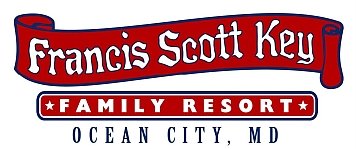
While Key was composing the line "O'er the land of the free," it is likely that black slaves were trying to reach British ships in Baltimore Harbor. Africans in America, he said, were: “a distinct and inferior race of people, which all experience proves to be the greatest evil that afflicts a community.”Ī few weeks after British troops in the War of 1812 stunned and demoralized America by attacking Washington and setting the Capitol building and the White House ablaze on Augthe British turned their attention to the vital seaport of Baltimore. When he wrote the poem that would, in 1931, become the national anthem and proclaim our nation “the land of the free,” like Jefferson, Key not only profited from slaves, he harbored racist conceptions of American citizenship and human potential. In 1814, Key was a slaveholding lawyer from an old Maryland plantation family, who thanks to a system of human bondage had grown rich and powerful.

The seeming contradictions between Jefferson’s slaveholding history, deeply racist personal views, his support of the institution in his political life, and his assertion of human rights in the Declaration, in many ways parallel Key's story. “All Men are Created Equal” and “The Land of the Free”-both those mottoes sprang from the pens of men with quite narrow views of equality and freedom. However, we fail to do the same with our national anthem’s composer Francis Scott Key. We create.”įrancis Scott Key, a slaveholding lawyer from an old Maryland plantation family, wrote the song that would in 1931 become the national anthem and proclaim our nation “the land of the free.” Your debts are paid cuz you don’t pay for labor It comes up all the time, as in the smash Broadway hit Hamilton when Lin-Manuel Miranda’s Alexander Hamilton takes Jefferson down a peg or two:Ī civics lesson from a slaver. We note the paradox underlying Jefferson’s authorship of the Declaration. When we consider the legacy of the Declaration and its author, Thomas Jefferson, we confront and debate this compelling paradox-that the man who trumpeted the “self-evident” truth that “all men are created equal” owned some 175 slaves. It is instructive and moving to hear the entire text in all its beautiful eloquence and with all the inherent irony of its rhetoric of freedom and equality contrasting with the realities of slavery and the treachery practiced on the “merciless Indian savages.” Something about paying attention solely to spoken words for a few minutes provokes deep discussion. We take a bit of time to contemplate the words and ideals that defined the nation. Though the exercise works better in my head than it does in practice-it is always a challenge to get my nine- and six-year kids to sit quietly on a day promising parades and fireworks-I never fail to get something out of the experience. Ours is a family tradition of listening while National Public Radio personalities recite the Declaration of Independence.

Every 4th of July, I ask my family to sit down in front of the radio as if we’re tuning in to one of Franklin Delano Roosevelt’s Fireside Chats, the nationally broadcasted speeches the 32nd president made between 19.


 0 kommentar(er)
0 kommentar(er)
